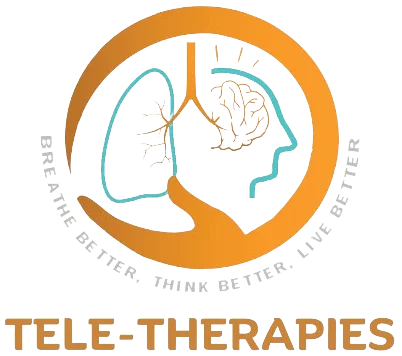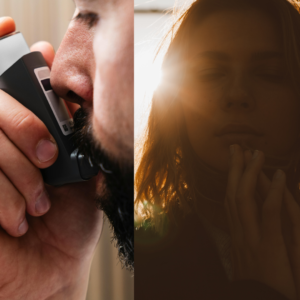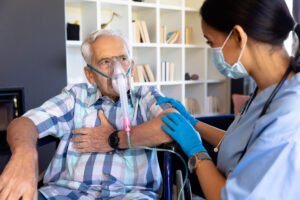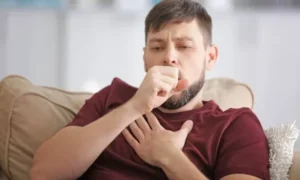A nationwide survey of over 2,100 UK adults, conducted by YouGov and commissioned by Dr. Devi Sundar, founder of Tele-Therapies and MindBody Synergy CIC in Gloucestershire, UK, highlights a critical gap in awareness: only 31% of UK adults recognise that chronic respiratory diseases can have serious mental health impacts. Nearly seven in ten people are unaware of the emotional reality faced by millions living with chronic lung disease.
“Our findings show a significant gap in public perception, which can delay help-seeking and under-recognition of psychological distress in people with chronic respiratory illness,” says Dr. Sundar.
Millions of people living with chronic lung conditions such as COPD, asthma, and long COVID face more than just physical breathlessness — they also experience emotional breathlessness. Anxiety, fear, depression, and isolation often accompany these conditions, yet remain largely invisible and untreated, quietly eroding quality of life.
A Silent Crisis
Awareness is particularly low among younger adults (18–24 years, 32%) and men (28%), whereas women (34%) and older adults (55+, 36%) show slightly higher recognition. Alarmingly, working-age adults — often juggling jobs, families, and health — are the least likely to be very aware, with only 14% saying they are “very aware” and one in four (25%) admitting they are “not aware at all.”
Life circumstances also play a role. Separated or divorced adults (38%) and widowed individuals (33%) tend to have higher awareness, likely due to lived experience or caregiving roles. In contrast, married adults (29%) and parents (33%) show moderate recognition, highlighting the need for more outreach in families and communities.
Regional Differences
The survey also revealed regional variation in awareness:
Highest: Wales (37%), South West (35%), Northern Ireland (33%)
Lowest: South East (27%), East of England (29%)
Average: Scotland, London, Midlands (31–32%)
These differences suggest that local health messaging and community support significantly influence understanding — or leave gaps.
When emotional breathlessness goes unnoticed, it doesn’t just affect mental health; it can worsen physical symptoms, amplify breathlessness, reduce treatment adherence, and delay help-seeking. Emotional suffering can deepen physical suffering.
Full Report: Sundar, D. (2025). Breath & Mind: Closing the Gap of Emotional Breathlessness in Chronic Respiratory Disease — UK National Awareness Survey Report 2025 (2.0). Zenodo. https://doi.org/10.5281/zenodo.17644275
Integrating Mind and Lungs
Over two decades of clinical experience have shown me that treating the lungs alone is not enough. At Tele-Therapies and MindBody Synergy CIC, we’ve developed culturally sensitive, trauma-informed programs combining psychotherapy, neuroscience, Ayurveda, and breath-based rehabilitation. When psychological care is embedded into respiratory treatment, patients cope better, recover more fully, and feel less alone.
“The mind and lungs are deeply interconnected, communicating through breath and the nervous system. A trauma-informed, culturally sensitive approach can be life-changing. Integration is no longer optional — emotional and physical breathlessness must be treated together,” says Dr. Sundar.
Dr. Devi Sundar’s Call to Action
It’s time to act:
Launch public awareness campaigns to highlight the emotional burden of chronic lung disease.
Embed routine psychological screening and support within pulmonary rehabilitation programs.
Train clinicians in trauma-informed and culturally sensitive care.
Allocate targeted funding to models that treat both body and mind.
Breath is life. It’s time our health system treated it that way — not just with inhalers and oxygen, but with empathy, awareness, and psychological support.
Support our Gloucestershire campiagn “ Integrate Mental and Physical Health Care for COPD Patients in Gloucestershire”
https://www.change.org/MentalHealthCOPD
About Dr. Devi Sundar

Dr. Sundar founded Tele-Therapies LTD and MindBody Synergy CIC, offering nationwide, online, evidence-informed programs for people with chronic respiratory disease, anxiety, depression, and burnout. She combines neuroscience, psychotherapy, Ayurveda, and breath-based rehabilitation to promote whole-person healing through a culturally attuned, trauma-informed approach.
MindBody Synergy CIC empowers individuals and communities through holistic mind-body interventions, supporting people to overcome chronic respiratory conditions, mental health challenges, and workplace stress-related injuries nationwide. Popular activities include Breathe Café (free) and Canvas Breath Art (subsidised fee).
Dr. Sundar’s book, Breath Beyond Illness, explores the emotional toll of chronic respiratory disease and the breath–trauma loop linking mind and lungs. It provides evidence-based insights, reflection prompts, and her Psychosocially Integrative Pulmonary Rehab (PIPR) Model for integrating emotional and physical healing.
Available on Amazon in eBook & Paperback
https://tinyurl.com/3wfr4bs9
About the Study
The findings are drawn from Tele-Therapies’ service development survey. All figures, unless stated otherwise, are from YouGov Plc.
Sample size: 2,173 UK adults (aged 18+)
Fieldwork: 7th–8th October 2025 (online)
Data weighting: nationally representative






